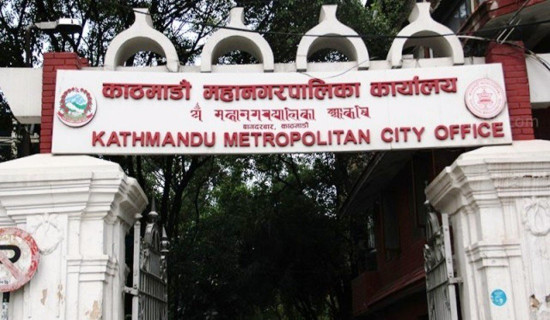- Tuesday, 24 February 2026
New Alliance Takes The Mantle
KP Sharma Oli, CPN-Unified Marxist-Leninist (UML) chair, has returned as the country's Prime Minister on Sunday after a hiatus of three years. As the Nepali Congress opted to create a new coalition with Oli’s party, the UML strongman became prime minister for the fourth time by replacing outgoing PM Pushpa Kamal Dahal Prachanda. The 45th Prime Minister of Nepal, Oli earlier led each of his three governments - from October 11, 2015 to August 3, 2016, February 15, 2018 and May 13, 2021. As per the agreement between the two parties, the chiefs of two biggest coalition parties, Oli and NC president Sher Bahadur Deuba, will each lead the government for half of the remaining term of the current parliament, which ends on November 20, 2027.
Nonetheless, many question the longevity of the new coalition as the two larger partners embrace different political ideologies with leaders from different backgrounds. While the UML is a left party that adheres to communist principles, the centrist NC prides itself on its democratic credentials and boasts of leading various democratic struggles at various junctures in Nepal’s history. Yet, due to prevalent political instability in the centre and provinces, the two parties, despite having differing ideologies, came together to provide stability to the nation.
Unstable disposition
Meanwhile, some hold former prime minister Prachanda responsible for his downfall as he was seen as instrumental in bringing the NC and the UML together. During his one and a half years of rule, Prachanda was commonly seen as having an unstable disposition which he frequently displayed. Due to this unstable nature, he sought the parliamentary vote of confidence five times within 18 months since he led the government in December 2022. His strong penchant to remain prime minister until 2027 by aligning with the Congress and the UML at his convenience raised suspicions of Deuba and Oli, prompting them to team up to replace his government. This, however, delivered a blow to the idea of stability, of which reverberations were felt in everywhere including all tiers of governance.
Despite lacking enough numbers to win a parliamentary confidence vote, Prachanda showed determination to gain House support for the fifth time which he failed to gain. Many decried such a move though, stating that the confidence vote was a ploy to compel the President to appoint a new prime minister as per Article 76(3) of the constitution, which would have allowed the parliamentary leader of the NC, the single largest party in the House, to be the next PM instead of Oli. However, the Congress and UML had vowed to go together to get Oli appointed under Article 76(2), which postulates a lawmaker backed by two or more parties having a House majority will be appointed as prime minister. The President appointed Oli as per Article 76(2) after consulting constitutional lawyers.
Addressing the House prior to the confidence vote last Friday, Prachanda launched a scathing attack on the UML chair and new prime minister for ditching his party. He didn't show the same level of bitterness towards the Congress leader as he did towards Oli, but cautioned Congress President Deuba to be aware of the activities of the UML leader. However, he cited different reasons for his government’s unexpected departure: some elements fearing his government’s impending actions against high-profile individuals involved in corruption and scandals caused the fall of the Prachanda government. According to Rastriya Swatantra Party (RSP) Chair and outgoing Home Minister Rabi Lamichhane, no sooner had he declared to open corruption-related files belonging to powerful individuals than the Prachanda-headed government collapsed.
The new coalition government will include ministers having proven credentials to effectively oversee their respective ministries, besides providing the much-needed political stability and good governance to the country. Combating corruption, accelerating development to achieve prosperity, and, most importantly, revising and amending some articles of the current constitution that they blame for producing hung parliaments are other key objectives of the new coalition government. Prachanda, however, expressed strong opposition to the idea of revising the constitution clauses. He argued that any constitutional amendments should not compromise the principle of guaranteed parliamentary participation for women, Dalits, religious minorities, and other marginalised groups, many of whom are elected through proportional representation (PR) methods.
People's mandate
The new coalition will assess and, if necessary, revise the PR system. It is now said that a party with a handful of seats won through the first-past-the-post election might possibly obtain several seats under the PR system, creating a hung parliaments and continuation of coalition politics. They offered the RSP as an example, which only won six or seven seats in the first-past-the-post voting but obtained a total of 21 seats in the lower house owing to the PR system. Parties such as the RSP and Maoist Centre have been criticised for setting up coalitions at the expense of larger parties. Experts say that smaller parties forming governing coalitions violate the people's mandate.
Such a scenario, numerous NC and UML leaders argue, has to be altered by addressing some of the constitutional provisions. Since the new government under Oli now has a two-thirds majority, addressing such issues won’t be a difficult proposition. It is also true that if the Oli-led ruling coalition becomes successful in modifying electoral systems and procedures, parties like the Maoist Centre, RSP, and many other regional or fringe parties will find it quite difficult to win as many legislative seats as they currently have in the coming polls. Finally, Oli has only one and a half years for his fourth innings as chief executive of the nation. He is required to be accountable towards the people and nation. Being supported by the NC and other smaller parties in the new ruling alliance, Oli will have an easy sailing in achieving many of his government’s goals.
(Upadhyay is a former managing editor of this daily.)

















